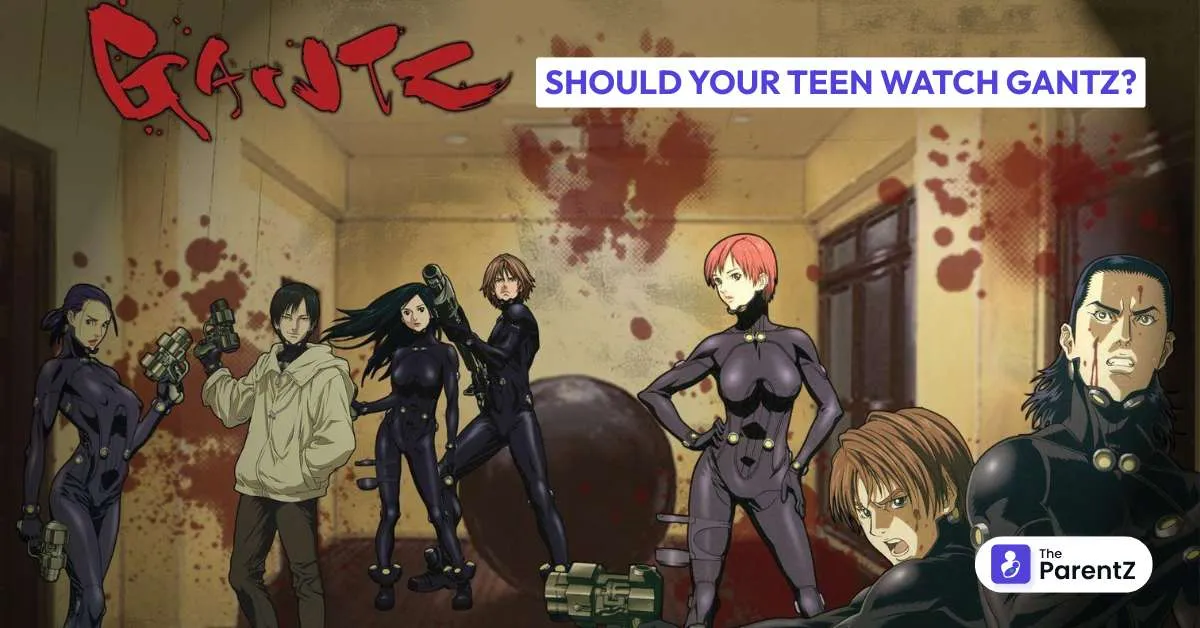Introduction
If Gantz could be described in one word, it would be “unfiltered.” This anime doesn’t care about comfort, boundaries, or emotional safety. It plunges headfirst into graphic violence, sexual content, and existential dread—deliberately testing what viewers can handle.
For teens, Gantz is dangerously intriguing. It’s stylish, brutal, and seemingly philosophical. But it’s also emotionally raw, deeply cynical, and often nihilistic. It’s a show that demands extreme caution—not just for what it shows, but for what it implies about life, morality, and human worth.
Overview
Gantz begins with two high school students, Kei Kurono and Masaru Kato, dying in a train accident. Instead of staying dead, they wake up in a strange room with others who’ve also recently died. At the center is a black orb—Gantz—which sends them on deadly missions to kill aliens hiding in plain sight.
Each mission is a battle for survival. If they die again, it’s permanent. If they kill enough enemies, they earn points toward a resurrection or a way out.
But there are no rules beyond violence. No explanations. No emotional support. Just blood, panic, and the constant looming question: Why are we here?
Themes
1. Death and Moral Collapse
Gantz operates in a moral vacuum. People are killed without reason. Players betray each other. “Heroes” act selfishly. Gantz explores how fear and desperation turn ordinary people into killers—or worse.
For teens trying to form their own moral compass, this content can be both thought-provoking and potentially damaging without proper guidance. It doesn’t offer answers—just uncomfortable questions.
2. Sexual Exploitation and Objectification
One of Gantz’s most troubling aspects is its portrayal of women. Female characters are frequently sexualized, often shown nude, and reduced to their physical appearance. There are scenes that border on sexual assault, played for shock value or male fantasy.
This isn’t artistic exploration—it’s exploitation. Teens must understand that what’s depicted here isn’t “adult” or “mature”—it’s manipulative, and shouldn’t be confused with normal or healthy behavior.
3. Nihilism and the Fragility of Life
At its core, Gantz is about how easily life can be taken—and how meaningless it might feel. Characters die without fanfare. The world doesn’t mourn them. The Gantz system offers no answers. In this bleak framework, the show asks: What matters, if nothing lasts?
This perspective can resonate with teens going through existential questions, but it can also reinforce hopelessness if not counterbalanced by real-world support and discussion.
Age Preference
Recommended for: 18+ only
This is not a show for young viewers. It contains explicit nudity, sexual scenes, intense gore, disturbing themes, and a nihilistic worldview. Even emotionally mature teens may find its content overwhelming or psychologically harmful without context.
Who Should Not Watch
- Anyone under 18
- Viewers sensitive to sexual violence, gore, or emotional trauma
- Teens struggling with depression, anxiety, or suicidal ideation
- Parents looking for deep moral resolution or character redemption arcs
Gantz is less a journey and more a descent. It doesn’t offer healing—it demands you endure.
Lessons From It
If there’s a message in Gantz, it’s buried under cynicism. Some moments suggest the importance of human connection, bravery, and sacrifice. Others feel like they mock those very ideas.
Still, if viewed critically, Gantz can highlight what happens when society strips away empathy, when survival replaces morality, and when systems value bodies over lives. For a mature teen with strong emotional support, these reflections could spark meaningful discussion—but only if watched through a highly critical lens.
Conclusion
Gantz is brutal, explicit, and emotionally draining. For some, it’s a raw artistic commentary on modern society’s darkest instincts. For others, it’s simply trauma disguised as entertainment.
If your teen is curious about it, don’t just ban it—talk. Ask why they’re drawn to it. Offer context. Watch with them, if appropriate. And above all, remind them that the world isn’t as hopeless as Gantz makes it seem.





Be the first one to comment on this story.